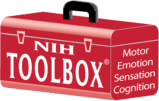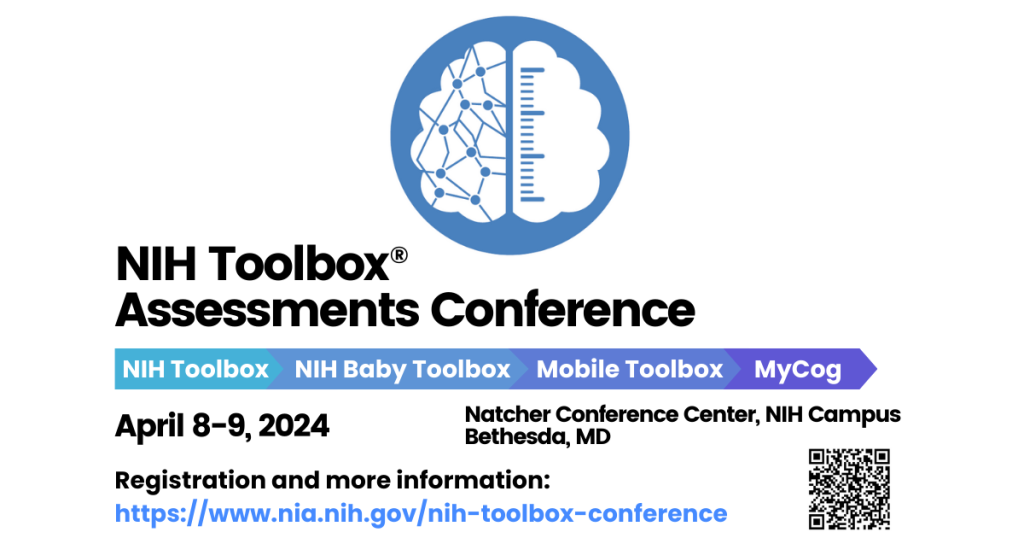NIH Toolbox® for Use in Clinical Settings
Often clinicians feel pressured to accomplish more in less time. Luckily the NIH Toolbox can help. Designed to be quick and flexible, you can administer any NIH Toolbox test in 7 minutes or less. Using state-of-the art test development techniques, including Item Response Theory and Computer Adaptive Testing, these brief tests can preserve psychometric qualities (e.g., validity and reliability) frequently associated with much longer tests. The NIH Toolbox V3 Score Reports offer a quick and individualized view of the patient’s functioning. Sign in or register to gain access to NIH Toolbox User Resources and view a sample report.
Test Selection
Patients present a variety of neurobehavioral complaints from mobility issues to cognitive deficits. Using the NIH Toolbox, a clinician can select amongst a wide array of tests and comprise their own custom battery as needed. For example, to assess a patient’s presenting problem, an examiner could administer tests of executive function (cognition), dexterity (motor), hearing (sensation), and social withdrawal (emotion) in under 20 minutes. Because scoring happens automatically, the score report is ready for examiner review at the end of the assessment.

Highlighted Use Case
In a recent scoping review of 281 clinically focused publications (Fox et al, 2022), the NIH Toolbox Cognition Battery was used most frequently of all the test domains (Cognition = 225, Emotion = 49, Motor = 29, Sensation = 16). The type of clinical population also varied across studies. The most common clinical categories were neurological disorders (n = 111), followed by psychological disorders (n = 39) and cancer (n =21). As of May 2021, these publications listed in this review have been cited over 1,000 times.

Explore Our Assessments Solutions
Cognition
Mental processes involved in gaining knowledge and comprehension, such as thinking, knowing, remembering, judging and problem solving.
Motor
A set of complex physiological processes that require the integration of multiple systems, including neuromuscular, musculoskeletal, cardiopulmonary, neural motor and sensory-perceptual systems.
Sensation
Biochemical and neurological process of detecting incoming nerve impulses as nervous system activity.
Emotion
Strong feelings, such as joy, sorrow, or fear. It is an affective state of consciousness in which one of these feelings is experienced.
Testimonial of Cindi Nowinski

domain, for example, has more than 40 tests to choose from.”
Getting Started with the NIH Toolbox® is easy!
View aspects of the system at no cost. Simply download the NIH Toolbox app onto your iPad today, apply for cognition access, and review any test on the app for free.
Recent News
Join us for the NIH Toolbox® Assessments Conference
Registration and call for abstracts now open! Audience Targeting all investigators, clinicians, and industry partners with…
New App Can Detect Dementia in Less Than 30 Minutes
The NIH Toolbox V3 app can assess cognitive, motor, sensory, and emotional function in people three…
NIH Toolbox App Provides Access to Tests for Cognition, Motor, Sensation and Emotion
Tool may help improve patient care with access to tests for everything from dementia risk to…



